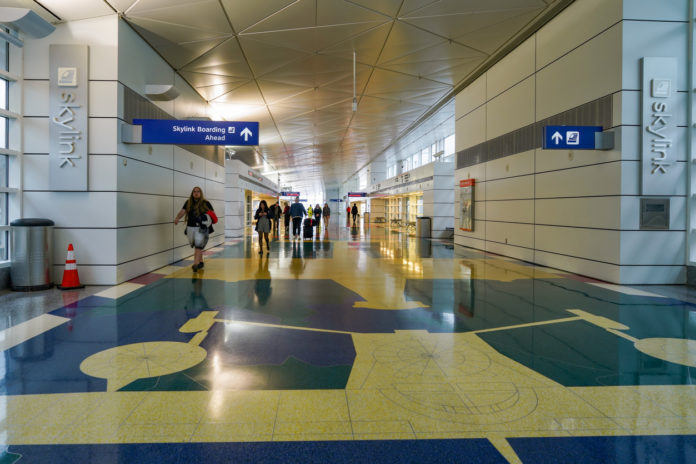NSW Health has begun screening passengers arriving on flights from Melbourne following the diagnosis of a positive case of COVID-19 in a hotel quarantine worker in Melbourne late on Wednesday.
Arriving passengers are also being asked if they have been to any of the venues of concern listed on the Victorian Department of Health and Human Services (DHHS) website.
“Anyone who has been in Melbourne since 30 January 2021 is asked to check the Victorian health website, to check if they have attended a public exposure site,” NSW Health said in a statement.
“If they have they should get tested immediately and isolate for 14 days since being there, regardless of the result. They should not travel to NSW.
“You must also get tested again towards the end the 14-day period (12 days after exposure) regardless of symptoms. In addition, if you develop any symptoms during that period, please get tested immediately.”
People who arrive in NSW from Victoria will also have to complete passenger declaration, with those who provide false information to face an on-the-spot fines.
NSW Health said anyone in NSW who has recently been in Melbourne should continue to monitor the Victorian DHHS website for additional venues of concern and updated health advice and follow this advice.
In a separate incident relating to a Victorian quarantine facility, NSW Health has also been advised that five people in NSW were staying at a quarantine hotel at the same time as transmission took place between guests in adjacent rooms.
“These five people have already been contacted and advised to get tested and isolate for 14 days since they were there regardless of the test result, and to test again at the end of that period,” NSW Health said.
“NSW Health is closely monitoring the situation in Victoria and will update its health advice accordingly. We will continue to work closely with our colleagues in Victoria and other jurisdictions to ensure that appropriate public health measures are in place to protect the community.”
Today is the NSW state’s 18th day in a row with no reported locally acquired cases in NSW.
“High testing rates are vital in helping to contain the spread of the disease, as this gives us the best chance of finding new cases and preventing new chains of transmission from becoming established,” New Health said.


